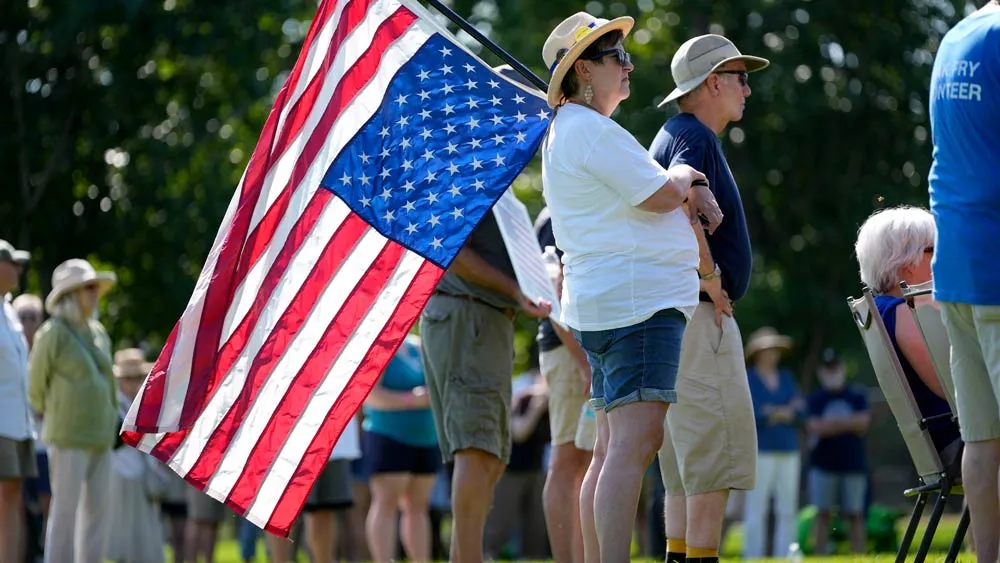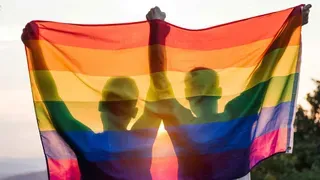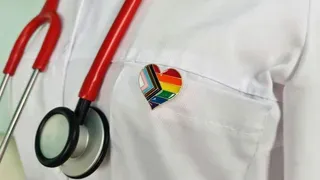May 17, 2007
Talking politics at Latino Pride
Peter Cassels READ TIME: 4 MIN.
A small crowd of about 10 made for a lively discussion of the intersection of Latino heritage and LGBT identity on the political landscape at a May 15 panel discussion titled "Elections 2008: Inclusion and Democracy! Is the Latino GLBT community included?" at The MALE Center in Boston's South End. The event was organized by Somos Latinos LGBT as part of this year's Latino Pride festivities.
The talk touched on a range of issues, from the dearth of Latino elected officials and the influence of religious leaders on Latino voters to the way in which the issue of immigration may bridge the gap between the Latino LGBT community and the mainstream Latino community.
State Sen. Jarrett Barrios, one of three panelists, offered one explanation for the lack of Latino pols, using an example from his 2002 Senate campaign. The Cambridge Democrat, who at the time was a state representative, said that at the start of his campaign he wondered how his identities as an openly gay man and a Latino would play in a district that included the historically socially conservative, blue collar towns like Everett, Charlestown and Chelsea. "I sort of imagined that the issue that would be a bigger issue would be my sexual orientation, of the two," said Barrios. "But I gotta tell you, it was a much bigger issue in part of my district that I was Hispanic."
"I was never called any anti-gay epithet when I was going to door to door," he also said, but he heard the word 'spic' on a handful of occasions while campaigning in Charlestown - the only community he lost in the 2002 election.
Barrios observed that because of the work of "so many people being out in politics and in life in Massachusetts" voters are comfortable voting for gay people, "but that other stereotypes that are based on race and ethnic background haven't been effectively challenged at ... the grassroots level. So it was still okay for people to express them in that way."
When talk turned to how the LGBT community could counter the political influence of socially conservative churches in the Latino community -many of which are Catholic or Pentecostal - Lisbeth Melendez, the development director for National Stonewall Democrats, advocated confronting the churches head on. "I am a true believer in going into the hornet's nest," said Melendez. She recalled that when advocates began doing public education on equal marriage in Maryland several years ago in conjunction with the filing of a marriage lawsuit in that state, they hosted public forums in Hispanic communities that they publicized by handing out fliers outside of the neighborhood churches. The discussions, said Melendez, focused on "what did it mean to stand for discrimination as a Latino on the issue of marriage and that was our hook. From that, [we said] if you say no to marriage, how can you expect us to defend you on the issue of immigration? We turned the question around." By seeking common ground on immigration rights, said Melendez, marriage activists were able to gain a group of allies in the broader Latino community who became willing "to talk about this issue from the perspective of immigration - what did marriage mean to the immigration struggle."
Panelist state Rep. Liz Malia, who represents a large Latino constituency in her Jamaica Plain district, also made a case for the mainstream Latino community to unite with the LGBT community in the fight for marriage rights: She noted that when the battle over in-state tuition rates for the children of illegal immigrants flared up on Beacon Hill, many of its most vocal opponents - chief among them former state Rep. Marie Parente - were lawmakers "who were most virulently against marriage." Coming during a lull in debate over same-sex marriage, Malia noted that the immigration issue was "the red meat" that got thrown to conservatives, "and people came out again."
Like Melendez, Wilfredo Labiosa, a co-founder of Somos Latinos, knows a little bit about going into the "hornet's nest" of a Latino church. Labiosa recalled being invited to Lion of Judah Church in Boston on World AIDS Day 2005. The church was founded by Roberto Miranda, the chairman of VoteOnMarriage.org, the organization sponsoring the anti-gay marriage amendment now pending before the legislature; Miranda has delivered some of the most inflammatory rhetoric about gay people during the debate on marriage equality. Labiosa said although Miranda expected him to stick to HIV/AIDS issues, he decided to raise the issue of marriage equality during his time in the pulpit. "You saw it in his eyes, he didn't know how to shut me down," Labiosa recalled of Miranda's reaction.
A few others at least, were impacted more positively. "A lot of people from there later on contacted us trying to get information because their sons and daughters were gay and lesbian," said Labiosa. "So even if it was only four people who asked that's a success for us. We didn't get Roberto Miranda to stop his rallies in front of the State House," said Labiosa, "but no one [was] able to stop [him] two years ago."
Peter Cassels is a recipient of the National Lesbian and Gay Journalists Association's Excellence in Journalism award. His e-mail address is [email protected].







